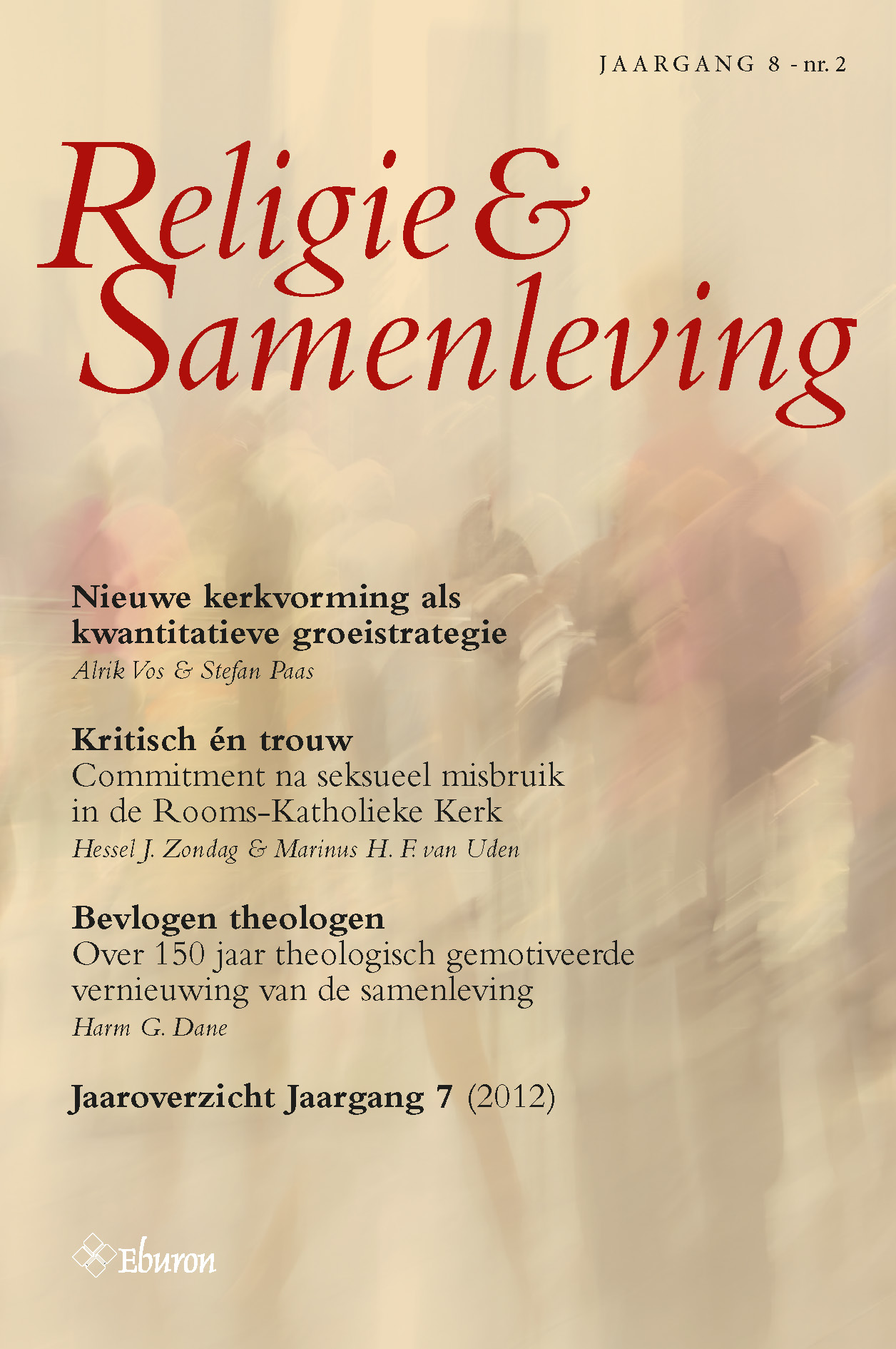Nieuwe kerkvorming als kwantitatieve groeistrategie
DOI:
https://doi.org/10.54195/RS.12681Samenvatting
This article reflects on the thesis that new church formation (church planting) is “the most effective evangelistic strategy under heaven” (Peter Wagner). This thesis has achieved the status of doctrine among Evangelical Protestants. It has also found wide acceptance within many Dutch Protestant denominations, in particular the ones with an evangelical mind-set. It is widely believed that church planting is a major strategy for quantitative church growth, by attracting people without a Christian background (‘conversion growth’). These assumptions seem to be closely related to Religious Market Theory. Obviously, any proven strategy for quantitative church growth is highly relevant for the secular context of Western Europe. This article investigates whether these assumptions, of a strategy that originated in America, are justified with respect to the Dutch context. Research is presented, that was recently done in the Netherlands. Its results indicate that churches less than ten years old are, under certain conditions, more effective in reaching outsiders than older churches. Some explanations for this relative success are discussed. It appears that the three main factors for numerical success are: a demographically convenient location, entrepreneurial leadership in line with the ethos of the community, and a concentrated use of time, money and resources.




